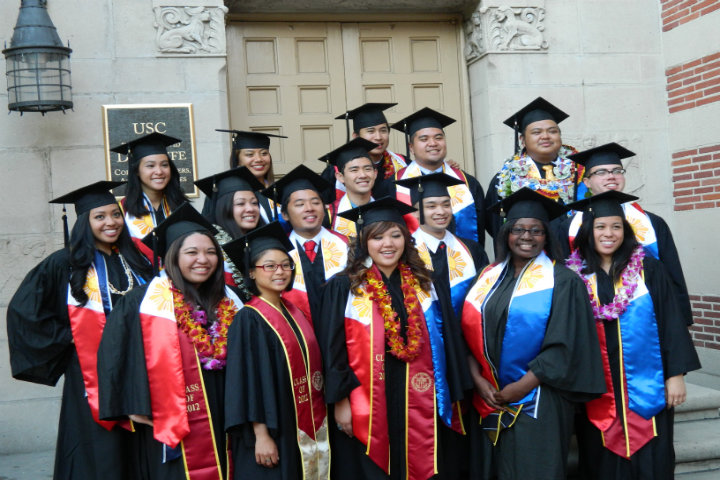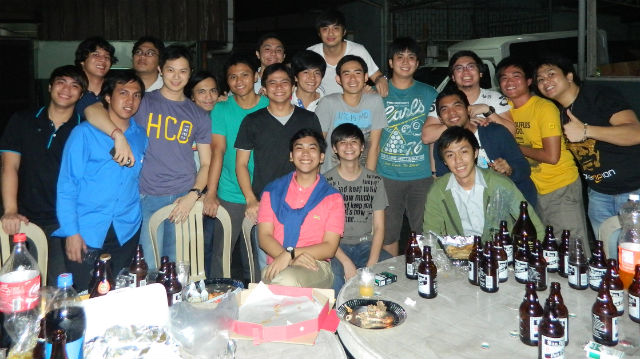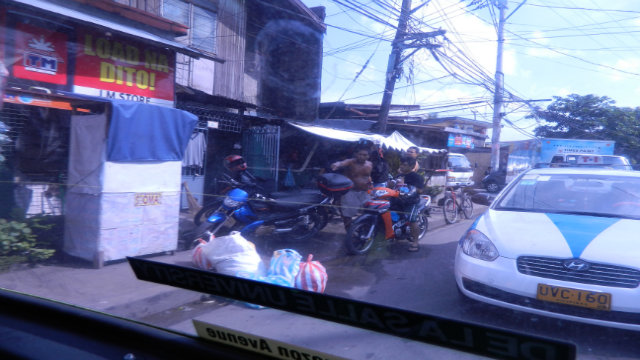SUMMARY
This is AI generated summarization, which may have errors. For context, always refer to the full article.
Thick smog encased the crowded streets, jeepney drivers’ horns buzzed in an endless cacophony, and plastic bags scattered all over the streets of Quezon City.
So why did I still feel a positive vibe?
Returning to the Philippines for the first time since I left 7 years ago at the age of 15, I anticipated feeling like a stranger in my own country. After all, I should be more Americanized by now with my fancy accent and love for Trojan football. Instead, I was surprised at how comfortable I was to be back.
Speaking in my native Filipino flowed in a way that English does not. And being reacquainted with family and friends, I felt more at home than I had in years being with people who shared similar experiences and values: they understood why I go to Mass on Sunday, follow a curfew even now that I have graduated from college, or still have the need to inform my parents of my whereabouts.
I even saw opportunities for myself to work and raise a family.

Fitting in
When I came back to Los Angeles, I felt my eagerness to adapt to American society around me change. For years, I had struggled to fit in — to know the popular cultural references that people grew up with, understand the dating culture, and learn what “success” truly means in this society.
After my visit to the Philippines, I started to feel that mastering these things was not enough: even if I could complain about the traffic like a typical Angeleño or declare In-N-Out as the best burger I’ve ever tasted, I could only feel completely at home living in the Philippines.
Knowing that I felt drawn to my homeland does not mean the decision to move back is an easy one. My parents live in Alhambra and I have tons of college loans. I also feel an expectation that if I move back, I have to do it rich. And part of me is terrified to leave what has become my home in Los Angeles.
I have met here some of the smartest and most compassionate people from different backgrounds. This has made me more open-minded to their experiences regardless of my culture and beliefs.
So for more than a year I have endured this affliction of feeling pulled between two places.

Immigration
I am not the only one to learn that immigration is not always a simple one-way journey. If I decide to move back to my homeland, I would be joining a large number of educated Asians and Asian-Americans returning to their home countries from the United States.
Of the 4 to 7 million Americans who currently live abroad, approximately one million are of Asian background, according to Edward Park, Professor and Director of the Asian Pacific American Studies Program at Loyola Marymount University.
This group of returning immigrants is growing. Two of the countries where the trend is most pronounced are India and China. In India, almost 100,000 people of Indian descent moved back to the country in 2010 compared to 35,000 in 2006, according to the Migration Information Source.
And according to an article about returning Chinese professional migrants from the US published in the database Project Muse, 632,000 scholars and student migrants who studied abroad, including the US, chose to return to mainland China in 2010 compared to only 108,300 in 2009.
Other places where the trend is increasing are South Korea and Japan. “Samsung, a huge Korean tech company, wanted to innovate. But they realized that they just don’t have the talent in Korea,” Park said. “So, they began recruiting Korean-Americans.”
Home and heart
In my adopted hometown of Alhambra, I had a harder time finding like-minded people. Standing in front of the library and boba shops, I talked to immigrants from Hong Kong, India, Sri Lanka, Nicaragua, and Mexico. Each one said he or she had left and was not looking back.
At a community forum, one Mexican woman even told me she had already bought a cemetery plot for herself here.
One difference I noticed between the people I interviewed and myself was that most of them either left their home country at a very young age, married and had children here, or had a negative experience in their native country.
“I would like to stay here in a country that has stable politics,” Mei Lam, who moved to Alhambra from Hong Kong, told me. “And my future children, they can also enjoy the democracy instead of having to fight hard for freedom of speech.”
Sonny Sehmi, a native of England who owns the Indian-British fusion restaurant Hot Red Bus on Main Street with his American wife, said he sees a future for himself and his family in this city.
“I live here, I married, I opened a business in Alhambra, about to become a father,” Sehmi said. “Home is where your heart is and my heart’s definitely here.”
The more time I spend in the US, the further I feel from my homeland: the penetrating warmth of the humid tropical weather, the holler of vendors selling taho and fishballs, and the company of people who made me feel welcome even after being away for years. But I also feel a growing urgency to act fast.
Growing up in a Third World society, I am scared I might settle for a comfortable and risk-free life instead of living in a place where I can possibly have a stronger impact.
It is every person’s right to decide what is best for themselves and their families, but it saddens me every time I hear stories of my own friends and family getting separated from their spouses to work abroad, spending Noche Buena away from their children, or even watching their father’s wake through a computer screen.
Unlike millions of Filipinos who remain abroad because of their legal status, not being able to afford to go back home, or having nobody left to go back to, I have the privilege of being able to return.
I realized that my last visit to my homeland was not simply fueled by nostalgia for the memories of my life growing up in the Philippines. More than anything else, I think I saw a glimpse of an entirely new future for myself. I just didn’t expect it to be in a familiar place. – Rappler.com
Alfred Dicioco is a reporter for the Alhambra Source. He was raised in Manila and Los Angeles. He graduated with a degree in Theatre from the University of Southern California. Follow him on Twitter: @freddieknows
Add a comment
How does this make you feel?

There are no comments yet. Add your comment to start the conversation.